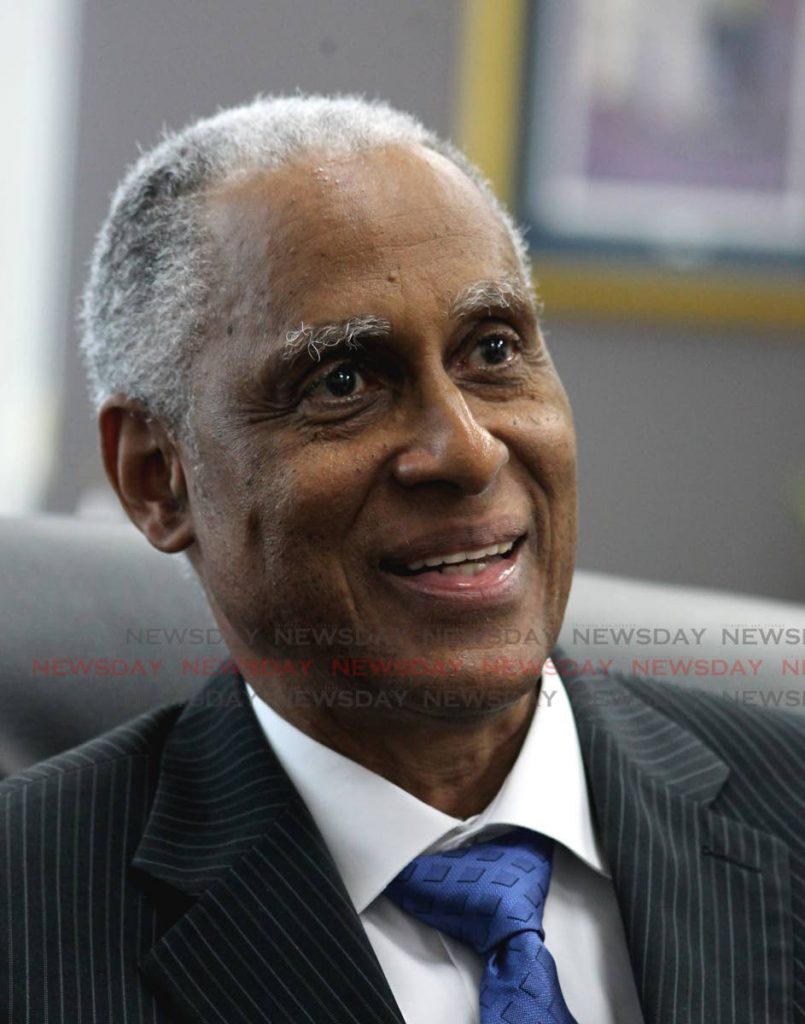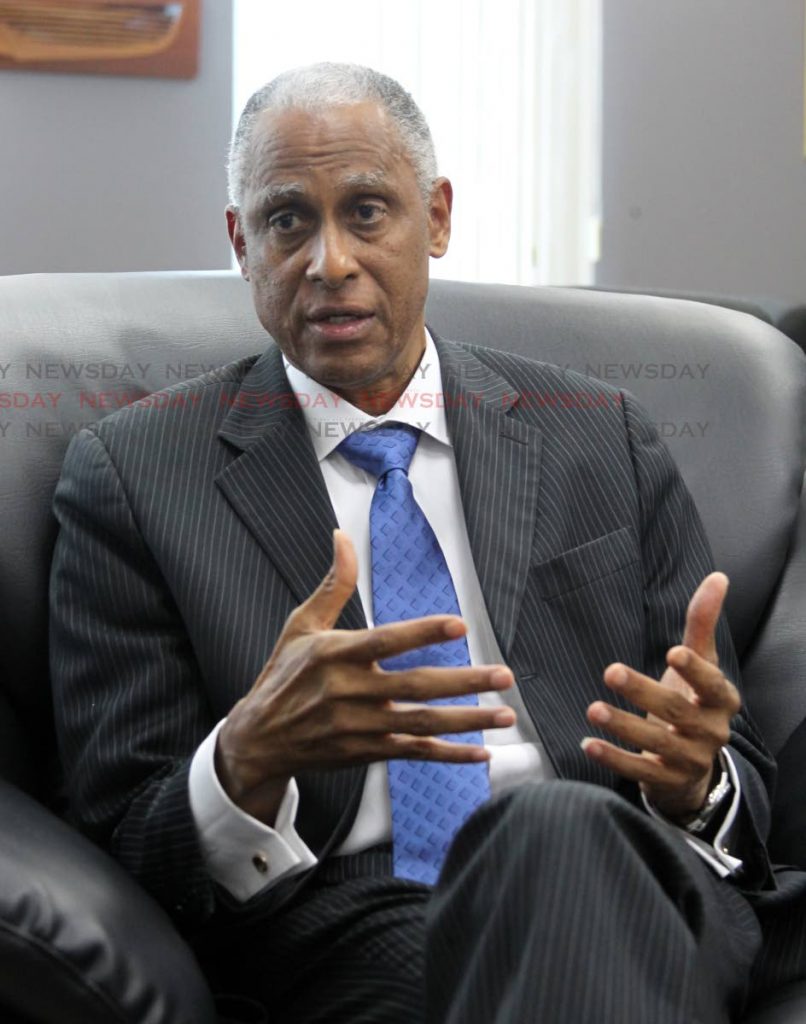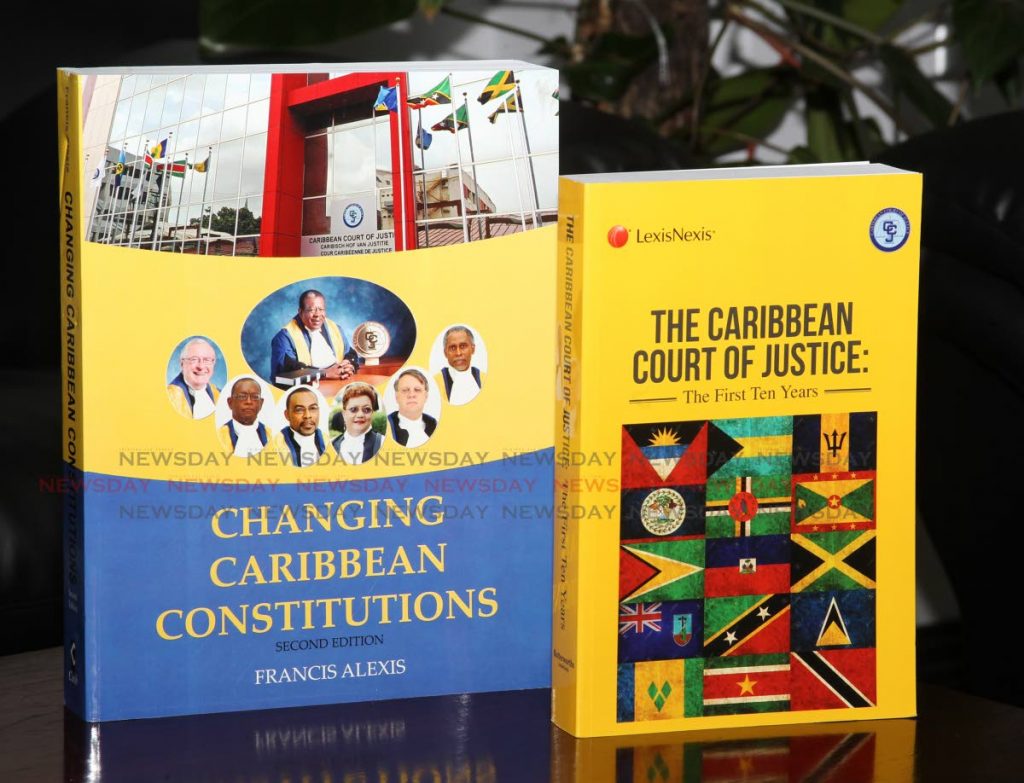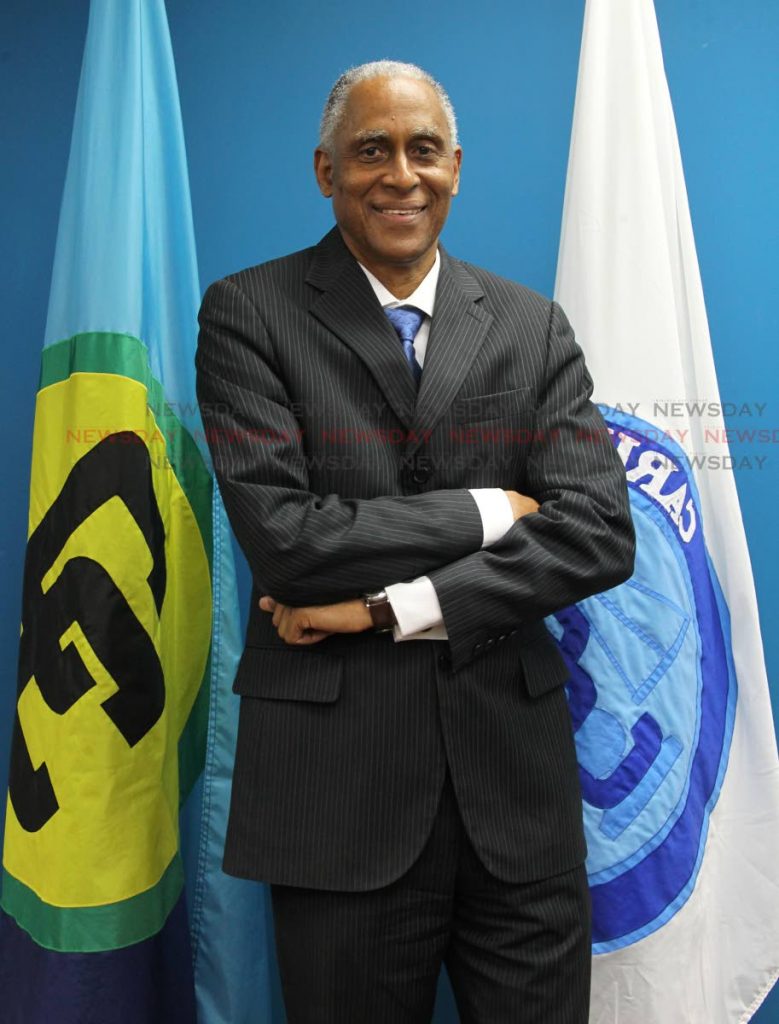CCJ, best court for all

The new head of the Caribbean Court of Justice (CCJ) will be working doubly hard to convince TT nationals and other citizens in the countries that have not yet signed on completely to the CCJ as their final court of appeal, that it is truly the best court for the region.
“Judging is not a mathematical science but the appreciation of culture and values and societal goals whose national disputes you are judging,” Justice Adrian Saunders told Sunday Newsday last week. “I think a Caribbean court will always be better placed to do that than a court based in Timbuktu or wherever.”
He said: “We in the Caribbean are just as capable of producing independent, impartial and bright judges as any other nation. I don’t think we are inferior to any other court anywhere else. The Privy Council is the best court for Britain. The US Supreme Court is best suited for America. The CCJ, in my humble view, is the best court for the Caribbean.”
The 65-year-old Vincentian-born, Caribbean jurist defended the CCJ saying it can stand toe to toe with any other final appellate court in any other jurisdiction underscoring that the CCJ is the best court for the Caribbean countries who conceived it, financed it and are currently underutilising it. Saunders said in many of the jurisdictions a referendum is needed, and it is the people that ultimately decide.
In a wide-ranging interview at his office on Henry Street, Port of Spain last week, Saunders said the CCJ is not just an appellate court but also serves to adjudicate any other issues that arise out of possible breaches in the Caricom treaty. This is called the original jurisdiction and even if appeals aren’t sent to the CCJ, the original jurisdiction is utilised with many of the cases coming from TT companies. He added that in some way, TT and other Caricom countries are receiving some “bang for their buck”.

On February 14, 2001, the agreement establishing the CCJ was signed by Antigua and Barbuda, Barbados, Belize, Grenada, Guyana, Jamaica, St Kitts and Nevis, St Lucia, Suriname, and Trinidad and Tobago. Two years later Dominica and St Vincent signed on and the CCJ was inaugurated in April 2005. Of the 12 countries that facilitated the US$100 million investment that currently pays for the running of the CCJ, only four – Guyana, Dominica, Belize and Barbados – have chosen the CCJ as their final court of appeal. Two others, Grenada and Antigua and Barbuda tried unsuccessfully to convince their populace, through a referendum, to delink from the Privy Council and accept the CCJ. Saunders admitted that the shift is not an easy one and requires constitutional reform, sending the matter in the arena of politics. He veered away from the politics but said he and his team will be working to convince the population of the countries not yet joined, that the CCJ is worthy of their appeals.
The CCJ last month made a historic ruling that Guyana must hold elections after upholding a no-confidence vote against the Arthur Granger administration.

“We want to do more outreach work. The court sees itself not just as an institution but one that interfaces with the justice system in the countries that are part of us. We can assist in the training of judges, devising or assisting in devising court structures. We have worked with Jurist Project to assist in establishing a sexual offences court in Antigua and Barbuda. We have helped Guyana with the introduction of new civil procedure rules. The Guyanese judicial system has improved, not all the credit is to us but we have been working with them. We keep wanting to do more. We are in this weird place where people don’t know you but they don’t trust you. They don’t examine your track record but automatically think its poor.”
Saunders said there are plans to increase the efficiency in hearing cases and shorten the length of time it takes to deliver judgments. Saunders added that the CCJ was first to do video conferencing to hear matters, something that the Privy Council is now copying, and like the Privy Council they are also live-streaming their hearings. He added that all cases are filed electronically making the process more efficient and readying themselves for when the other eight countries, including TT come on board. In the last fiscal year, the CCJ completed 21 appellant cases and eighth cases in the original jurisdiction. He added that this outreach will help convince the people not only that the CCJ is there and is competent but to invite them to engage with them and judge for themselves.

“Some people believe we don’t do anything, people need to appreciate the output and the quality of the judgment to form objective opinion. Too often the right comparator is not used. Many use their local court jurisdiction. You cannot extrapolate from your local justice sector to the CCJ some of the things that you are unhappy with in the local justice sector. The CCJ is a final court. What people should do is ask how long does it take in final courts from the time of filing to a judgment. If you ask that question, then the CCJ will be in a far more favourable light.”
He added: “There is nothing I can say to convince anyone that if all 12 came we will give a judgment in the same six months. We don’t deal with paper anymore, cases are filed electronically now. If Jamaica or TT comes on board now we will have a lot more cases. One of our points in the strategic plan is to ensure we are organising ourselves that when that happens we are ready.”
Saunders said the CCJ is a new court when compared to other courts, but the Caribbean is ready for judicial independence. In the interim he said, the court will do the best it can for the four countries that use it for their appeals.
Asked about the complaints that the Privy Council is superior to the CCJ and the competency of the judges, Saunders chuckled saying those who use that excuse don’t know the track record of the Privy Council judges or their schooling but complain about CCJ judges. He repeated his mantra that CCJ judges can see from near and judge from far, a concept that only Caribbean judges adjudicating Caribbean issues can appreciate.
He said his mantra allows a judge to fully appreciate all the nuances close enough to understand and identify all the little factors to give the best decisions possible. Judging from far is being objective and distant from the situation, something only Caribbean judges can do for Caribbean cases.
“The Privy Council is a good court, they have been in existence for many years and they do what they do quite well. I am satisfied that we are just as good a court and we do what we do just as well. I can’t imagine that in 20-30 years, countries that will have been independent for 70/80 years still using a court in Britain. If that does happen we, will have to just deal with that."

Comments
"CCJ, best court for all"